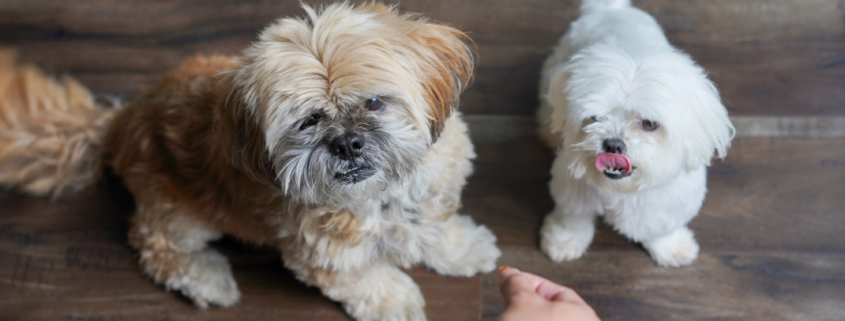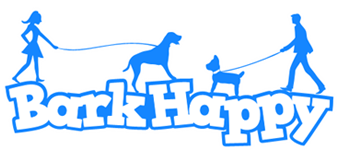Be Prepared: What to do when getting a new dog
If you’re thinking about getting a dog, you want to make sure you are ready. There are sacrifices in time and money you will have to make and it’s crucial that you consider what it will mean to be responsible for a new furry friend.
Before you start looking
There are a number of considerations you should think through before getting a dog. After all, you want to give a dog a happy forever home and not regret your decision.
- Financial: Even just in their upkeep, dogs can get expensive. Between vet bills, food, and other amenities the annual cost for caring for a dog, according to the ASPCA, is about $420 for a small dog, $620 for a medium dog and $780 for a large dog. The cost for a puppy can be more and they can ruin items in your home. Consider if you want a puppy or would rather adopt a more adult dog.
- Breed compatibility: Dog breeds are ever expanding and while all dogs are different, their breed does determine certain kinds of behaviors and needs. Some dogs require more outdoor space and some are comfortable with a small room, some are better with other animals and children and others are less so. Size of the dog doesn’t necessarily translate to one or the other. There are small dogs that need space to run and large dogs that are very happy laying around in one room. If you need help in determining the best breed for you the American Kennel Club has an online Dog Breed Selector that poses useful questions. Honest answers to things like your activity level, comfortability with barking noise, and how much shedding will irritate you, will make your selection more accurate and lead to a better match for your lifestyle.
- Take your time: Your instinct may be to jump into getting a new dog, but taking it slow will pay dividends. It’s hard to say no when you see the eyes of a would-be companion (in fact, they evolved that look, just to get to your softer side) but you want to make sure you can give that dog a good life.
- Ready to go — think adopt first: There are many shelters with wonderful dogs waiting to be placed in new homes, and there are a number of benefits to adopting including some free or reduced medical procedures like spaying or neutering and follow up on conditions like knee dysplasia.
Prepare your space
Once you’ve picked out the pet of your dreams, there are a number of preparations for a new dog you have to make right away.
- Get your house in order: You’ll want to put away anything that can be consumed or chewed up by a new dog. Get food away from where your dog might get it and protect any knick-knacks from over eager tails.
- Poison control: Be careful of any poisonous plants or products that might be in the area where a dog can reach. That includes looking at your outdoor plants and what you use for things like fertilizer, weed killer, and to melt ice. Pet friendly versions of these products are available. There are also a number of foods that make dogs sick like chocolate, grapes, and onions. Do a little research and try not to feed your dog people food in general.
- Get a crate: Crate training is great for new dogs. While it might seem cruel to you, a crate is a comfort to dogs, giving them their own private space. Make sure the crate you get is commensurate with the size dog you are bringing home. One too large and the dog may use part of it for a bathroom, too small and you risk it being too cramped.
- Get a dog bed: Dogs generally love having a place to be. So similar to the lesson of the crate, try introducing the dog to a bed that they will like in an appropriate size.
- Food: Do some research to discover what the best kind of food is for your dog. If it is not what they are used to, remember to switch over their food slowly by mixing a little of what you are going to feed them in with what they are used to eating.
- Bowls: Obviously you’ll need bowls for food and water – metal is best because it doesn’t break easily and is easy to keep clean. Try to get something that will resist sliding across the floor.
- Toys: Most dogs enjoy chew toys or pull toys that keep them active. Toys where you can insert treats, like kongs, can be particularly fun because they involve a food incentive.
- Leash, collar & harness: While there is some consideration as to whether a harness is necessary for a dog, walking with just a collar (especially for small dogs who are not leash trained) can cause neck injury.
- Gates: If you want to keep your dog in a certain part of the house (even if just part of the time) it’s useful to get some pet gates. However, do some research to see if your new dog will be stopped by the gate your purchase. Some dogs climb easily and some larger dogs can jump higher than you might think.
Prepare your dog
Bringing your dog home is exciting, but you want to make sure that your dog is ready for the big world.
- Get your dog spayed or neutered: This is important so the population of animals does not get out of control. Plus it will make being a pet owner easier. Many places have a law against having a dog that is not fixed anyway.
- Consider pet insurance: Costs associated with vet bills can be large, it often makes good sense to get pet insurance. There are good plans that cover vet visits and vaccinations as well as all kinds of potential accidents.
- Consider microchipping: It’s a great way to keep track of animals and make sure you can find them if they go missing. Microchipping is not expensive and might be the best decision you ever make regarding your pup.
- Learn where to socialize: Dogs are pack animals and generally love to get together. Seek out dog friendly resources in your area with BarkHappy and see how they quickly learn to connect with you and with other animals in the neighborhood.
Seem a little overwhelming? This is just a solid beginning when it comes to getting your dog ready for your new life together. Check this site for some useful checklists to look over that will help you keep the transition to dog owner under control. Take it slow, do your research, and don’t worry – it will all be worth it when you get greeted by a sweet friend at the door every day.
Sarah Archer
Sarah is a Content and PR manager at Your Best Digs. She’s passionate about evaluating everyday home products to help customers save time and money. When she’s not putting a product’s promise to the test, you’ll find her hiking a local trail or collecting stamps in her passport.





